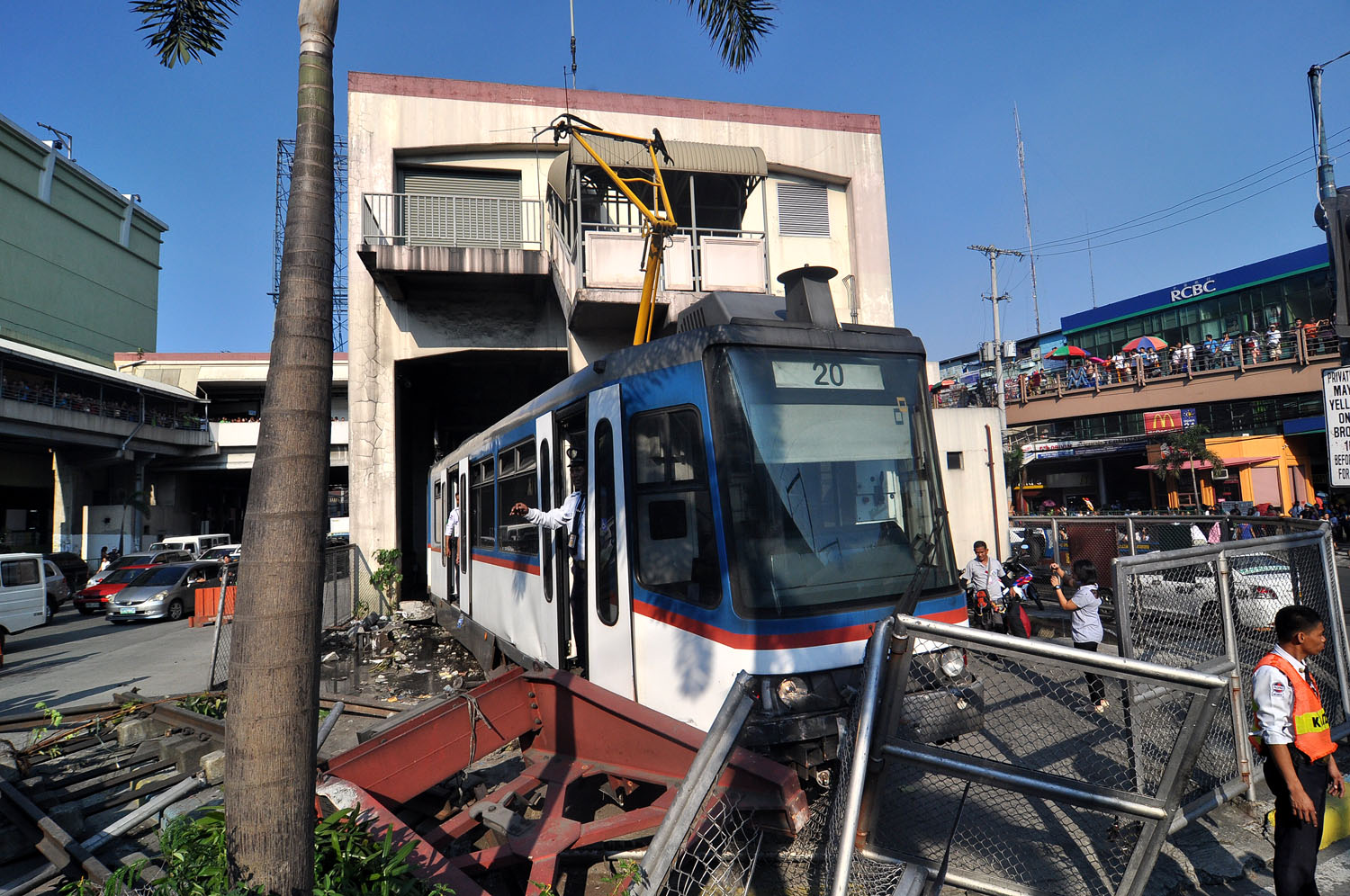
The MRT train that crashed and got derailed at the end of the station on Taft Avenue in Pasay City in August 2014. INQUIRER FILE PHOTO/RICHARD REYES
The “underfunded” Metro Rail Transit (MRT-3) is five times more dangerous compared to other trains in the world, a group of science and technology advocates said on Tuesday.
Advocates of Science and Technology for the People (Agham) said that the MRT-3 since 2013 has recorded 3.48 injuries for every 100 million passenger-miles compared to the 0.7 injuries in American light rail.
The group said the “lack of proper maintenance” has made the MRT-3 “unstable.”
In recent months, the MRT-3 has drawn criticisms from commuters due to the technical glitches and long queues at its stations.
In August 2014, at least 38 were injured after a wayward MRT-3 train overshot the tracks at the Taft Avenue station in Pasay City.
READ: MRT train skids, rams Taft station; 38 injured
On April 22, the MRT hit the lowest number of operational trains with only four trains running from the usual 14.
READ: MRT hits lowest number of operational trains
“Management failure caused all these breakdowns and glitches,” Engr. Archie Orillosa of Agham said.
“The technology of the train is very well understood by our country’s engineers. They know what’s wrong, they just don’t have the support or directive to fix it,” Orillosa said.
Agham said the public-private partnership entered by the government “is partly to blame for the escalating cost and many breakdowns.”
“This public private partnership setup divides the MRT system between the government and a private company. This Byzantine setup makes proactive management of the trains difficult if not impossible,” the group said in a statement.
Engr. Miguel Aljibe said the riding public is the biggest victim of the “dismal safety record of the MRT.”
“It’s not a stretch to say that nobody really knows who’s ultimately responsible for the MRT but we can be sure of the victim – the riding public,” Aljibe said.
“The dismal safety record of the MRT is a symptom of a deeper problem, which is the state’s abandonment of its responsibility to provide safe transport,” he said.
READ: MRT gets failing grade; survey cites filthy toilets, defective elevators
Agham said that based on its own count, 15 glitches and three injuries have taken place since the start of 2015.
“Unless drastic changes are made in how the DOTC manages the system, these breakdowns will only become more frequent and could threaten the lives passengers,” it said.
The MRT-3 was designed to serve 350,000 passengers daily but about 600,000 take its trains every day.
On Wednesday, the Department of Transportation and Communication (DOTC) announced that it has awarded maintenance contracts to four of seven components of the rail system, which includes rail tracks and permanent ways, buildings and facilities, communications systems and ticketing or the current automated fare collection system.